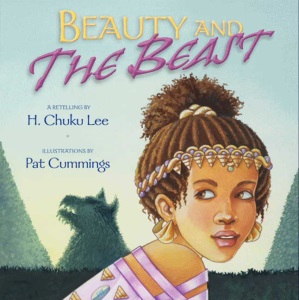2018 School Spending Survey Report
Transformers: Ready or Not…
Translating Madame Villeneuve’s and Madame Leprince de Beaumont’s eighteenth-century French into contemporary American
English for our picture book Beauty and the Beast was indeed a transformative event.
 Translating Madame Villeneuve’s and Madame Leprince de Beaumont’s eighteenth-century French into contemporary American
English for our picture book Beauty and the Beast was indeed a transformative event. In addition to the dramatic change in language, there were other differences, surprises brought on by time and the filter of many others before me. The process taught me (a former journalist who stumbled into the realm of children’s literature) which themes had survived over the 275-year written history of “La Belle et la Bête” and which had become “refined” or sweetened for easier consumption.
Translating Madame Villeneuve’s and Madame Leprince de Beaumont’s eighteenth-century French into contemporary American
English for our picture book Beauty and the Beast was indeed a transformative event. In addition to the dramatic change in language, there were other differences, surprises brought on by time and the filter of many others before me. The process taught me (a former journalist who stumbled into the realm of children’s literature) which themes had survived over the 275-year written history of “La Belle et la Bête” and which had become “refined” or sweetened for easier consumption.In this tale (in our version, told in the first person by Beauty), three main themes survive: love, magic, and the power of a promise. These were illustrated again and again. Love makes Beauty sacrifice her life for her father (love will make you do right; love will make you do wrong). Magic makes the prince into a beast. And promises make everyone behave.
It has been said many times that the only thing permanent is change. If done with enough imagination and purpose, change can be transformative, even magical. Sometimes it’s physical, beyond the control of ordinary people: what really controls the climate? Other times it’s mental, metaphysical, due to a new perspective or new information. In all cases it seems that change is going to happen, ready or not.
It seems to me that high on the list of things with the power to transform is hope. The belief that things will change for the better if only faith and purposeful acts are applied.
Our version of “Beauty” is an act of hope, the belief that when given a new and different perspective on an accepted story with universal themes of love, magic, and promises made, we can transcend the notion that only some people are equipped for change. That universal feelings like love, fear, and hope are in fact found in all people. And that the story is just as powerful no matter what the cultural setting. Most audiences appreciate and even cheer at the idea that someone would sacrifice her own safety in the hope of protecting someone she loves. And that kindness and love can magically transform a beast into a prince.
–H. Chuku Lee
* * *
Fairy tales, like folktales, are continually transformed by the folks who tell them. So the dicey bits have been cut from “Rapunzel”: thorns don’t gouge out the prince’s eyes, Rapunzel doesn’t get pregnant. And Cinderella’s stepsisters don’t carve up their feet in order to cram them into the glass slipper.
The timeless appeal of “Beauty and the Beast” may stem from our desire to believe that pure goodness can conquer the most terrifying of beasts. After seeing Jean Cocteau’s film La Belle et la Bête, I realized there was more to the story I thought I knew well. In the reference section at the library, I found a dusty version of the tale, written by Madame Leprince de Beaumont in 1756. The text was beyond my translating abilities, but Chuku’s former incarnation as a diplomat in Paris helped him unravel the archaic French.
His version, told from Beauty’s point of view, seemed elegant and contemporary. And I wanted to update Beauty as well, to show her as a young woman of color whose world clearly evokes Africa. The Beast’s scarifications even suggest a particular tribe. But although classics transcend time, trends, and cultures, some elements of the story seemed etched in stone: it had to be a rose, and the Beast had to be part animal. “Beauty and the Beast” has more than its share of classic themes: love conquers all, true beauty lies within, appearances can be misleading, magic can save the day…But Chuku hit upon one I hadn’t considered before, one that resonated with me while illustrating the story. For me, it has become the new timeless theme at the heart of the story: the power of a promise.
–Pat Cummings
From the May/June 2015 special issue of The Horn Book Magazine: Transformations.
RELATED
RECOMMENDED
ALREADY A SUBSCRIBER? LOG IN
We are currently offering this content for free. Sign up now to activate your personal profile, where you can save articles for future viewing.






Add Comment :-
Be the first reader to comment.
Comment Policy:
Comment should not be empty !!!